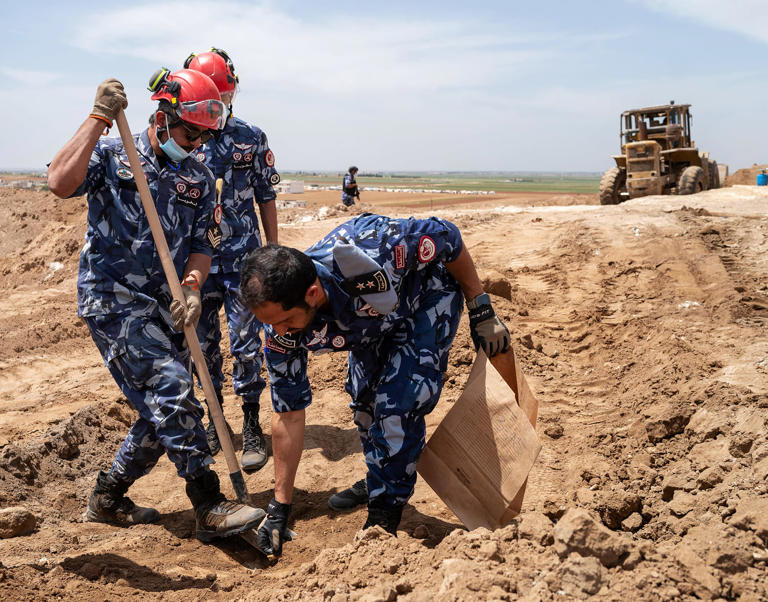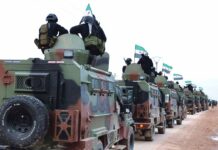
A Qatari-led mission has begun searching for the remains of US hostages killed by ISIS nearly a decade ago, in an effort carrying both humanitarian and diplomatic weight. According to sources cited by Reuters, Qatar’s International Search and Rescue Group launched the mission last week in the town of Dabiq, a former ISIS stronghold in northern Aleppo. The operation is being conducted with US support and in coordination with the Syrian government.
The mission, which has recovered the remains of three unidentified individuals so far, is focused on locating American aid worker Peter Kassig, who was executed by ISIS in 2014. Other victims include journalists James Foley and Steven Sotloff, and aid worker Kayla Mueller, whose death was confirmed in 2015.
The Kassig family released a statement expressing gratitude to those involved in the mission, while Diane Foley, mother of James Foley, told reporters, “We’re grateful for anyone taking on this task and risking their lives in some circumstances to try and find the bodies of Jim and the other hostages.”
High-Stakes Operation Amid Shifting Political Landscape
The search effort comes ahead of US President Donald Trump’s expected visit to Qatar and other Gulf nations. It follows an April visit to Washington by Qatari Prime Minister Sheikh Muhammad bin Abdulrahman Al Thani and Foreign Minister Muhammad Al Khulaifi, during which the operation was discussed alongside broader regional issues, according to a source familiar with the matter.
The Qatari Internal Security Force (Lekhwiya), which is leading the operation, announced Monday that its teams had discovered the remains of 30 individuals believed to have been kidnapped and killed by ISIS in Dabiq. The force stated that it conducted the operation at the official request of the FBI and worked closely with both US and Syrian authorities.
Syria’s New Leadership Seeks US Engagement
The mission also coincides with efforts by Syria’s interim government, led by President Ahmad al-Sharaa, to fulfill US conditions for sanctions relief. One of those conditions includes establishing a liaison office to assist with efforts to locate American journalist Austin Tice, who went missing near Damascus in 2012.
In January, Sharaa met with Tice’s mother in Damascus and pledged full cooperation. The American advocacy group Hostage Aid Worldwide stated it believes Tice is still alive, citing information as recent as early 2024.
Radwan Ziadeh, a Syrian political analyst, told Al-Araby Al-Jadeed that the search for US remains represents a strategic gesture by Damascus. “The new Syrian administration is taking this issue seriously, which explains the assignment of the Qatari mission to carry out this task,” he said.
Longstanding US Commitment to Recover Its Dead
For years, successive US administrations have vowed to locate and repatriate the remains of Americans killed during the Syrian conflict. A source cited by Reuters confirmed that the US military has conducted targeted operations in areas where it believes the bodies of Kassig, Foley, and Sotloff may be located.








